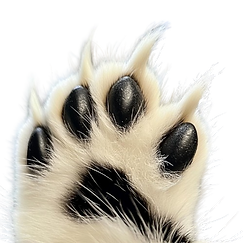Dakine Exotic Cats





Maine Coon Cat Breed Information
Overview: The Maine Coon is one of the largest domesticated cat breeds, renowned for its friendly demeanor, intelligence, and striking physical characteristics. Often referred to as "gentle giants," Maine Coons are known for their affectionate nature and playful personality, making them excellent companions for families and individuals alike.
Physical Characteristics:
-
Size: Maine Coons are among the largest domestic cats, with males typically weighing between 13 to 18 pounds and females ranging from 8 to 12 pounds. Some individuals can exceed these weights.
-
Coat: They have a long, thick, water-repellent coat that features a silky texture. Their fur is longer on the ruff (around the neck) and tail, while shorter on the shoulders.
-
Color: Maine Coons come in a variety of colors and patterns, including tabby, solid, and bi-color.
-
Eyes: Their large, expressive eyes can be gold, green, or copper, and they are set wide apart, giving them a friendly expression.
-
Ears: Prominent tufts of fur on the tips of their ears enhance their lynx-like appearance.
Temperament: Maine Coons are known for their sociable and gentle temperament. They are highly affectionate, often forming strong bonds with their families. This breed is playful and enjoys interactive toys, making them great for families with children. Maine Coons are also known for their intelligence and can be trained to perform tricks or walk on a leash.
Care Requirements:
-
Grooming: Regular grooming is essential to prevent matting in their long fur. Brushing a couple of times a week is recommended, with more frequent grooming during shedding seasons.
-
Diet: A high-quality diet that meets their nutritional needs is important for maintaining their health, especially considering their size.
-
Exercise: Maine Coons are active cats that require regular playtime to keep them mentally and physically stimulated.
Health: While generally healthy, Maine Coons can be prone to certain genetic health issues, such as hypertrophic cardiomyopathy (HCM) and hip dysplasia. Regular veterinary check-ups and responsible breeding practices can help mitigate these risks.
History: The Maine Coon is one of the oldest natural breeds in North America, believed to have originated in the United States in the early 19th century. Their history is rich with folklore, and they are often associated with Maine's maritime culture. Despite various myths surrounding their origin, they have become a beloved breed worldwide.
Conclusion: With their striking appearance and loving nature, Maine Coons are a fantastic choice for anyone looking for a loyal and engaging feline companion. Their adaptability and intelligence make them suitable for various living situations, from urban apartments to rural homes.
Hypertrophic Cardiomyopathy (HCM) in Maine Coon Cats
Hypertrophic Cardiomyopathy (HCM) is the most common form of heart disease in cats and is particularly prevalent in the Maine Coon breed. This inherited condition causes a thickening of the heart muscle (myocardium), which can lead to heart failure, blood clots, or sudden death.
Genetic Basis of HCM
In Maine Coons, HCM is associated with a specific mutation in the MYBPC3 gene. This mutation follows an autosomal dominant pattern with incomplete penetrance. This means:
-
One copy of the mutated gene (heterozygote) is sufficient for a cat to be at risk of developing the disease.
-
Two copies of the mutated gene (homozygous) often result in earlier onset, more severe symptoms, and a poorer prognosis.
However, due to incomplete penetrance, not every cat with the mutation will develop clinical signs of HCM. Some cats may carry the mutation but never exhibit symptoms, while others may develop the disease at varying stages of life.
Importance of Genetic Testing
Because of its dominant inheritance pattern and variable expression, genetic testing is a crucial tool in responsible Maine Coon breeding. Identifying carriers (heterozygous) and affected cats (homozygous) allows breeders to make informed decisions to reduce the incidence of HCM in future generations, while preserving genetic diversity in the breed.
Testing for the MYBPC3 mutation is simple and non-invasive, typically performed via a cheek swab or blood sample. It is strongly recommended for all breeding cats and encouraged for pet owners who want to understand their cat’s genetic health risks.







.png)
.png)




.png)

